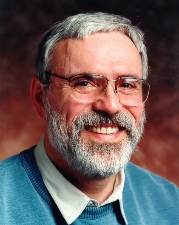 |
What I Wish I Had
Learned in University: Reflections on 30+ Years as a Software Developer
Bran Selic, IBM
Friday, March 17, 11am
SITE 5084, 800 King Edward Ave
Sponsored by

|
Abstract
“Of course, our
failures are a consequence of many factors, but possibly one of the most
important is the fact that society operates on the theory that
specialization is the key to success, not realizing that specialization
precludes comprehensive thinking.” – R. Buckminster Fuller
Computer science and software engineering curricula are long established
by now in most institutions of higher learning. They evolved from a few
utilitarian courses that taught basic programming skills into
fully-fledged academic programs reflecting the growing body of knowledge
in the field. Yet, it seems that some quite fundamental gaps persist in
the education of software experts, rendering many of them ill-prepared
for industrial needs. These problems, which are both technical and
cultural, can be addressed only if there is a clearer understanding of
the unique nature of software technology. Knowing how software differs
from traditional technologies will indicate where innovative approaches
to teaching are necessary, whereas knowing how it is similar to those
technologies will help us understand where classical time-proven methods
can be applied. This talk identifies some of the key problem areas in
current software-oriented curricula and describes suggestions for
dealing with them – from the perspective of a long-term practitioner of
industrial software development.
|
|
Biography
of Bran Selic
Bran Selic is
an IBM Distinguished Engineer at IBM and an adjunct professor of
computer science at Carleton University in Ottawa, Canada. He has over
30 years of experience in designing and implementing large-scale
industrial software, including design and implementation of software for
large real-time telecom systems as well as for embedded applications in
aerospace and robotics. Bran pioneered the application of model-driven
development methods in real-time applications and is the primary author
of a reference text on this subject. In 1992 he co-founded a successful
hi-tech startup, ObjecTime Limited (subsequently purchased by Rational
Software). He is a frequent invited speaker and lecturer at various
technical conferences and symposia dealing with real-time software and
model-driven development. Bran is presently chair of the OMG team
responsible for the UML 2 modeling language standard.
Bran received
his Dipl.Ing degree (1972) and Mag.Ing. degree (1974) from the
University of Belgrade in Belgrade, Yugoslavia. He has been living and
working in Canada since 1977.
This
website is maintained by Yongyi Mao, and was last updated on March 1st,
2006
|


